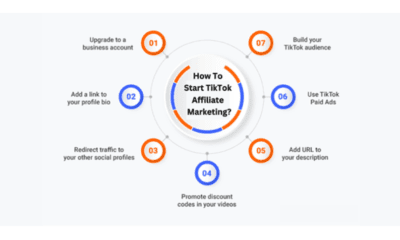Health
Breaking the Silence: Mental Health of Men

Mental health is an integral part of people’s wellness, though mostly overlooked, especially among men. Traditionally, society has made men cam up because men are not supposed to feel depressed or blue. This shaped men into not talking about their mental health issues. As a result, alarming rates of mental health disorders have emerged amongst men, and most of them suffer in silence.
While efforts to achieve improved recognition among men for the need in mental health has risen rapidly over the past years, many remain to be done. In fact, most of the work needed in efforts to help educate and break stigma is actually done in the month of June, or Men’s Mental Health Month. Organizations, healthcare professionals, and communities unite toward raising conversations, providing resources, and getting men to go out and seek help within this month. This article will attempt to discuss the problems that men likely encounter about their mental health and what might be done for their well-being.
The stigma of men’s mental health
One of the severest deterrents of men willing to find a solution is the stigma attached to mental health. For far too long, society associated masculinity with strengths like independence and emotional control. Many have been educated since early childhood that vulnerability and expressions of emotions are weakness. The expression “man up” or “boys don’t cry” are some of the idioms that order men not to talk about anything because men are supposed not to talk about their feelings even when they are in pain.
This stigma leads to a poisoned circle where men do not have the willingness to discuss their mental health problems and normally avoid treatment. The American Psychological Association states that less numbers of males seek therapy and counseling compared to females. The unwillingness to seek help coupled with pressures from society contributes to rising cases of untreatable mental health conditions among men.
Statistics of Male Mental Health
Poor mental health has been highlighted as the serious problem afflicting the male population; statistics to show the magnitude of the problem include:
Suicide Rates: The suicide rates documented for males are alarmingly very high in America. For instance, four times more American males die from suicide than females. This is a really scary figure that reflects apparent danger to appropriate mental health care for males.
Depression and Anxiety: Whereas depression is thought to be much commoner in women, depression and anxiety are not anyhow immune to men; however, it manifests in them. Men are much more likely to express and act out those feelings in terms of anger, irritability and aggression and not sadness or hopelessness.
Substance Abuse: Mental disorder problems were more prevalent among men and most likely to abuse substances, such as alcohol or drugs, to cope with the condition. Conversely, substance abuse deteriorates mental health conditions and thus creates a vicious cycle of addiction coupled with untreatable mental health conditions.
Work and Stress: Working stress and burnout highly debilitate men suffering from psychosomatic illness. Being the only bread earner for his family is unbearable anxiety and tension created in the minds of men. They are caught between the wishes of society and the fear of being considered weak or so weak to raise his concern.
Understanding the Challenge Specifically for Men
It is pretty different for men from that of women. The most important difference seems to be the form that mental struggle takes. A woman, for instance, would probably seek help through the means of emotion from a friend perhaps or another family member. A man, though, would probably withdraw or pour his emotions into, say, overwork, substance abuse, or dangerous acts.
Moreover, the expectations can create the probability of men adhering to traditional masculine models: male breadwinner, male in control, as a way of avoiding vulnerabilities. In fact, even such cultural expectations may be so severe that they exacerbate feelings of isolation and hopelessness by men.
The essence of Men’s Mental Health Month is breaking some of those issues by providing candid conversation supported by resourceful activities through support for those in need. The month focuses on breaking that silence and normalizing this care among men. It reduces the long-standing stigma that has been an obstacle to treatment.
Methods for Male Mental Health Improvement
Improving men’s mental health requires such an approach as multifaceted, educating, and raising awareness, as well as increasing accessible mental health care. Here are some effective strategies that might help men prioritize their mental well-being:
Open Conversations: Freely open men to share their feelings is the most significant change identified on the graph regarding mental health. To begin the process of making the society begin taking responsibility for acting in doing away with the concept that makes men silent and emotionless, opening up conversations begins with cultivating openness in discussions. Family, friends, and colleagues can then turn out to be great influences by supporting and including emotions in discussions.
Long-term actions will be anti-stigma campaigns and more awareness programs, like Men’s Mental Health Month. Publicized celebrity and media figures who go on record speaking about their mental health problems will be part of an important shift in the way mental illness is perceived by the public, persuading men to come forward for help. Provision for psychosocial support. In most cases, men do not know where to go for assistance. Mental health provisions and services, among them therapy and support groups available for these men to get them the much-needed care. In addition to this, employers can also contribute by providing mental health benefits as well as establishing a culture that prioritizes the welfare of all those in the work environment.
Promotion of Healthy Coping Skills: Should encourage men to engage themselves in healthy coping skills, like exercise, mindfulness, and hobbies, for the management of stress as well as enhancement of good mental health. Some of the most efficient management techniques of emotional life and relaxation include journaling, meditation, and nature-based activities. Sometimes, it can be quite intimidating to seek professional help, but the only thing that will address mental health issues is seeking professional help. Among the various things that a professional counselor and therapist can guide a person through are also there to maybe treat symptoms of depression, anxiety, and PTSD. Remember here that seeking help is not weakness but rather a sign of strength. Conclusion Gradually, in the process of the conversation with men, much remains to be done as such high rates of depression, suicide, and untreated mental conditions are the effects that come with this stigma of men in regard to mental health struggles. As such, it means society, through such initiatives as Men’s Mental Health Month, creates a culture where men feel okay to reach out for help. Every man deserves a life of emotional well-being and fulfillment. If we acknowledge specific challenges men face and offer them the support and resources required, we may look forward to paving a future where men’s mental health was given priority and was supported. Breaking silence over men’s mental health would be the very first step in creating a healthier and happier society for all.
Health
Nutritional Counseling for Eating Disorder Recovery

Eating disorders represent serious medical conditions which damage both physical structure and mental wellness of the patients diagnosed with anorexia bulimia or binge eating disorder. The recovery from eating disorders becomes intricate because patients need to address multiple treatment elements simultaneously. The recovery process requires nutritional counseling as the essential factor for people to reconstruct an appropriate connection with food while achieving the correct dietary balance needed for lasting recovery success.
Understanding Eating Disorders
Heartening patterns of irregular eating become harmful mental health conditions which contain problematic thoughts along with abnormal behaviors about food. People with anorexia nervosa severely limit food consumption because they fear becoming overweight and additionally show weight dissatisfaction whereas bulimia nervosa patients engage in binging eating habits requiring subsequent purging procedures. People who have binge eating disorder experience multiple occurrences of eating big meals despite avoiding behaviors that compensate for the eating episodes.
The Role of Nutritional Counseling in Eating Disorder Recovery
Eating disorder recovery needs nutritional counseling to bring back healthy eating patterns along with treatment for nutritional deficiencies. Eating disorder treatment in Dubai focuses on guiding people toward nutritious relationships with eating that eliminate food fears and eating-related guilt. As a main factor, patients need education about proper nutrition alongside learning to build healthy food relationships. Medical nutrition therapy enables diagnosing eating disorder-caused symptoms such as low energy and digestive troubles while immunity weakness while restoring vital nutrients to the body.
Sales individuals who have received nutritionist training work with clients to generate individualized eating plans based on diversity and nutritional equilibrium and proper caloric loads. The formal structure of this approach gives people the opportunity to construct better eating routines with help from a compassionate network free from criticism. Through nutritional counseling patients gain knowledge to choose food in a confident manner thus breaking down their eating-related shame and anxiety.
Key Components of Nutritional Counseling
Nutritional counseling starts with an extensive evaluation of each patient. A registered dietitian analyzes how clients eat while reviewing their medical information plus detecting emotional and physical effects from their eating disorder. Evaluating suitable nutrition needs and improving weaknesses becomes easier through this method.
A customized eating strategy is formed after establishing everyday meals which unite various nutrients between proteins and healthy fats together with complex carbohydrates. Such planning helps persons recover their physical health without neglecting the emotional and psychological impact of food consumption. The process of achieving success depends on practical and reachable objectives which clients achieve through continuous determination towards their improvements versus their pursuit of unending perfection.
The dietitian will assess patients’ recovery through scheduled appointments to modify their dietary plan if necessary or resolve any obstacles which stand in the way of healing. The continuous support system provided to clients helps maintain their motivation and achieves their recovery objectives.
Psychological Support in Nutritional Counseling
Natural healing for eating disorders combines mental and dietary aspects to achieve recovery. Individuals who suffer from eating disorders commonly experience intensive mental health challenges about their self-perception together with their personal value and food control disputes. The nutritionist must perform duties which surpass developing standard meal plans when dealing with these situations. A person needs psychological support because mental and emotional obstacles make recovery much harder to achieve.
Nutritionists and online therapists Dubai collaborate to provide patients with complete recovery solutions together. Through partnership these experts support patients in managing the eating disorder mental challenges that include weight fears along with food obsessions and eating disorders. The therapy aims to construct self-compassion while fighting detrimental thought cycles to improve positive body perception to create therapeutic results for mental and physical wellness.
Challenges in Nutritional Counseling
The practice of nutritional counseling comes with several obstacles even though it offers positive effects. The main impediment to change exists in the form of client opposition. People who suffer from eating disorders have either strong resistance to eating proper food or intense anxiety about consuming increased portions. The development of trust alongside motivation stands as a fundamental requirement in patient recovery because they need to understand this support system throughout the process.
Thwarting the psychological barriers remains difficult to manage. Eating disorders manifest from internal fears and anxieties which require more than nutritional support to resolve. To achieve successful recovery patients need to receive help from mental health specialists who evaluate their core problems.
The Long-Term Benefits of Nutritional Counseling
Such counseling provides both immediate weight restoration with additional lasting advantages. Nourishing one’s body and establishing a healthy food relationship enables individuals to maintain prolonged recovery during which they achieve superior quality existence. When treatment addresses complete eating disorder symptoms from a physical and emotional perspective people can stay away from worsening health conditions while living balanced lives.
Improvement of both mental clarity and energy levels are among the complete lifestyle enhancements that come from undergoing nutritional counseling. When individuals build healthier food habits they can preserve them into adulthood thus creating a state of peaceful coexistence with their food.
Conclusion
Eating disorder recovery requires nutritional counseling for its successful completion. Nutritional counseling enables medical recovery and food relationship building and assists in treatment of emotional factors that influence how people eat. Long-term recovery requires personal meal plans and psychological help in addition to sustained education which nutritional counseling provides to everyone. Steering toward recovery and embracing a balanced healthier lifestyle requires all individuals with eating disorders to ask for help from medical professionals and dietary experts.
Health
Upcoming Medical Conferences in India: Latest Innovations in Healthcare

India, a global hub for medical marijuana card NY advancements and healthcare innovation, frequently hosts some of the most significant medical conferences in the world. These events serve as platforms for researchers, practitioners, and industry leaders to exchange ideas, present research findings, and discuss the future of healthcare. This year is no different, with a plethora of conferences lined up across the country to showcase groundbreaking developments in the field. Here’s a comprehensive guide to some of the most anticipated medical conferences happening in India and the latest innovations they promise to highlight.
1. Indian Medical Association (IMA) Annual Conference
The IMA Annual Conference is a cornerstone event for medical professionals in India. This year’s theme focuses on “Integrating Technology for a Healthier Tomorrow.” The conference will cover various aspects of healthcare technology, from AI-driven diagnostics to telemedicine solutions.
Key Highlights:
- Workshops on artificial intelligence in diagnostics and patient management.
- Panel discussions on ethical challenges in adopting new technologies.
- Exhibitions showcasing the latest medical devices and health tech innovations.
This conference is an excellent opportunity for practitioners to stay updated on technological trends that are transforming the healthcare landscape.
2. MedTech India Expo and Conference
MedTech India is a premier event for the medical technology industry. It brings together innovators, manufacturers, and healthcare professionals to discuss the role of technology in improving patient outcomes.
Key Highlights:
- Launch of cutting-edge medical devices.
- Sessions on 3D printing in surgery and personalized medicine.
- Networking opportunities with global healthcare leaders.
This conference aims to bridge the gap between technology and clinical application, making it a must-attend for those interested in the future of MedTech.
3. Global Health Summit by AAPI
Organized by the American Association of Physicians of Indian Origin (AAPI), the Global Health Summit focuses on improving healthcare accessibility and affordability in India.
Key Highlights:
- Discussions on public health challenges in rural India.
- Collaborative projects between Indian and international institutions.
- Seminars on leveraging AI and blockchain in healthcare.
The summit also includes outreach programs aimed at addressing healthcare disparities in underserved areas.
4. Oncology Update Conference
This specialized conference brings together oncologists, researchers, and pharmaceutical companies to discuss the latest advancements in cancer treatment and research.
Key Highlights:
- Innovations in immunotherapy and targeted therapy.
- Emerging trends in early cancer detection.
- Collaborative workshops on clinical trials.
Attendees can gain valuable insights into the evolving field of oncology, making this conference a focal point for cancer specialists.
5. CardioCon India
CardioCon India is dedicated to advancements in cardiovascular medicine. The event features interactive sessions and presentations from leading cardiologists and researchers.
Key Highlights:
- Updates on minimally invasive cardiac procedures.
- AI and machine learning applications in cardiology.
- Workshops on emergency cardiovascular care.
This conference is particularly beneficial for cardiologists seeking to enhance their clinical expertise.
Latest Innovations in Healthcare to Look Forward To
1. Artificial Intelligence and Machine Learning
AI continues to revolutionize healthcare by enabling faster diagnoses and personalized treatment plans. Several conferences, including the IMA Annual Conference and CardioCon India, will delve into AI applications in diagnostics and treatment.
2. Telemedicine
Telemedicine has emerged as a game-changer, especially in the wake of the COVID-19 pandemic. Events like the Global Health Summit will focus on telemedicine’s role in improving healthcare access in remote areas.
3. Robotics in Surgery
Robotic-assisted surgeries are gaining traction for their precision and reduced recovery times. MedTech India Expo will showcase the latest robotic surgical systems, highlighting their applications in minimally invasive procedures.
4. Genomics and Personalized Medicine
Advancements in genomics are paving the way for personalized medicine, where treatments are tailored to individual genetic profiles. The Oncology Update Conference will feature sessions on how genomics is transforming cancer care.
5. Sustainable Healthcare Solutions
With the growing focus on environmental sustainability, conferences like the Global Health Summit are expected to discuss eco-friendly practices in healthcare, such as reducing medical waste and adopting renewable energy sources in hospitals.
Why Attend These Conferences?
- Networking Opportunities: These events bring together professionals from diverse backgrounds, providing an excellent platform for networking and collaboration.
- Knowledge Sharing: Attendees can gain insights into the latest research findings, clinical practices, and technological innovations.
- Skill Development: Workshops and hands-on sessions help practitioners enhance their skills and stay competitive in their fields.
- Exposure to Cutting-Edge Technology: Exhibitions and live demonstrations offer a glimpse into the future of healthcare technology.
Conclusion
India’s medical conferences are not just events; they are gateways to the future of healthcare. By attending these conferences, healthcare professionals can stay ahead in their fields, contribute to the advancement of medicine, and ultimately improve patient outcomes. Whether you are a medical student, a seasoned practitioner, or an industry leader, these conferences offer something valuable for everyone. Mark your calendars and prepare to be inspired by the latest innovations in healthcare!
Health
The Top 10 Health Concerns in the United States

For millions of Americans, health difficulties create severe challenges in the fast-paced world of today. Knowing about these common ailments, which range from sepsis to heart disease, can help individuals to take preventative action and live better lives. The top 10 health concerns in the US are investigated in this blog article, along with information on their causes, symptoms, and potential solutions.
1. Heart Conditions
In the US, heart disease continues to be the main cause of mortality. It comprises a multitude of disorders, including heart failure, hypertension, and coronary artery disease. The risk can be elevated by things including genetics, smoking, bad eating, and inactivity. A healthy lifestyle, periodic exams, and the care of underlying medical disorders are all components of successful prevention.
2. Cancer
Every year, countless American families are touched by cancer. Numerous cancers, including those of the breast, lung, and prostate, have been associated to genetics, environmental exposure, and lifestyle behaviors. Screenings for early detection can considerably boost the efficiency of treatment. Many individuals still have hope owing to breakthroughs in treatment.
3. Long-Term Respiratory Conditions
Lung function is influenced by chronic respiratory disorders such as asthma and chronic obstructive pulmonary disease (COPD). Smoking, air pollution, and employment dangers are the primary factors. Using prescription medicines, avoiding pollutants, and quitting smoking can all help to lessen symptoms and boost quality of life.
4. Being overweight
In the US, obesity is becoming a growing concern as it is connected to various health dangers, including diabetes and heart disease. Obesity is caused by a multitude of causes, including sedentary lifestyles and high-calorie meals. A multimodal method comprising mental therapy, physical activity, and food instruction is needed to address this condition.
5. Diabetes
Obesity and a sedentary lifestyle are usually related with diabetes, especially type 2. Serious negative effects like renal failure and cardiac difficulties may develop from it. Medication, glucose monitoring, and lifestyle adjustments are all part of treatment. Early diagnosis and awareness are key.
6. Disorders of the Mind
People’s quality of life is profoundly influenced by mental health problems including anxiety and depression. Two key difficulties are stigma and restricted access to mental health care. Better mental health results can be attained with a multidisciplinary strategy that incorporates therapy, medication, and support groups.
7. Alzheimer’s illness
Alzheimer’s is a degenerative neurological illness that weakens cognitive and memory ability. Age, genetics, and lifestyle variables are considered to be key influencers, however the specific rationale is still being explored. With an emphasis on early detection and viable therapies to minimize development, research is continuously being performed.
8. Pneumonia and Influenza
Respiratory infections like influenza and pneumonia can cause major complications, especially in elderly adults and persons with weaker immune systems. Effective preventative techniques include regular vaccines and basic personal hygiene. A rapid recovery depends on early treatment.
9. Disease of the Kidneys
Chronic renal illness, which is commonly brought on by diabetes or high blood pressure, causes a gradual reduction in kidney function. Since there may not be many symptoms in the early stages, frequent testing is necessary. Controlling risk factors and, in severe circumstances, dialysis or transplantation are all part of therapy.
10. Sepsis
A potentially lethal reaction to infection, sepsis causes organ failure and tissue damage. It’s vital to diagnose and treat people immediately. Lifesaving strategies include boosting understanding of the early warning signals of sepsis. Prevention requires prompt infection treatment and adequate infection control.
In conclusion
A multimodal strategy encompassing education, early detection, lifestyle adjustments, and access to healthcare services is needed to address these health risks. We may attempt to minimize the prevalence of these ailments and promote the health of every American by supporting proactive health management and raising public understanding.
Five Pointers for Handling Typical Health Problems
1.Make routine health checks a priority: For disorders like kidney disease, diabetes, and cancer, early detection is vital. Maintain routine checkups and screenings to spot probable issues early and considerably boost treatment success.
2.Eat a Well-Balanced Diet: Obesity and related problems including heart disease and type 2 diabetes may be prevented with a diet heavy in fruits, vegetables, nutritious grains, and lean meats. It’s also vital to keep away from processed meals and sugar-filled drinks.
3.Remain Active: Engaging in regular exercise benefits mental health, heart health, and the maintenance of a healthy weight. Every week, strive to engage in at least 150 minutes of moderate-intensity activity, including swimming, cycling, or walking.
4.Stop Smoking and Limit Alcohol: While excessive alcohol consumption can cause liver damage and other health concerns, tobacco smoking is a primary contributor to respiratory diseases. If required, receive help stopping smoking and consuming alcohol in moderation.
5.Control your stress and mental well-being: Include stress-relieving methods in your normal routine, such as yoga, meditation, or deep breathing exercises. If you’re battling with mental health concerns like depression or anxiety, receive expert support to enhance your general wellness.
FAQs
1.Which health issues are most frequent in the United States?
Heart disease, cancer, long-term respiratory disorders, obesity, diabetes, mental health issues, Alzheimer’s, influenza, pneumonia, renal disease, and sepsis are among the most frequent health concerns.
2.How may heart disease be avoided?
A balanced diet, regular exercise, stopping smoking, and regulating blood pressure and stress are all examples of preventative techniques.
3.Which lifestyle alterations can benefit in the treatment of diabetes?
Adopting a nutritious diet, keeping an eye on blood sugar levels, exercising, and taking prescription medicines as advised are crucial improvements.
4.Why is awareness about mental health concerns important?
Increasing awareness allows early intervention, minimizes stigma, and enhances access to resources for mental health.
This guide highlights that even though these health concerns are significant, information, education, and action may lead to a brighter future.
-

 Health10 months ago
Health10 months agoDiscover ://vital-mag.net Blog: Expert Tips for Total Wellness
-

 Business12 months ago
Business12 months agoTikTok Affiliate Marketing | A Complete Guide for Marketers and Creators |
-

 Health11 months ago
Health11 months ago7 Day Juice Fast Weight Loss Results: Expectations & Strategies
-

 Home and Gardening11 months ago
Home and Gardening11 months agoSunset Gardens Apartments: Complete Guide
-

 entertainment5 months ago
entertainment5 months agoTop 7 Occasions to Send a Thank You Card and Why They Matter
-

 Life style12 months ago
Life style12 months agoWhy i stopped eyelash extensions?
-

 entertainment5 months ago
entertainment5 months agoCelebrate Life: The Pleasure in Sending Birthday Cards
-

 Business11 months ago
Business11 months agoSecret Strategies of Competent Trading Companies
